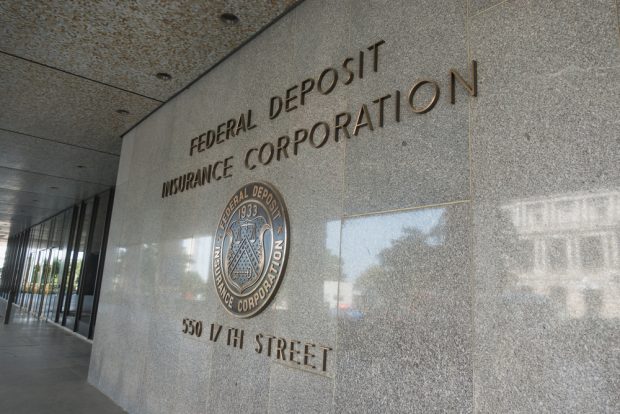Richard S. Garabedian, a Washington attorney who specializes in credit union charter conversions, doesn't think HarborOne Credit Union's conversion to a state co-operative bank, approved by its members Monday, will trigger a wave of credit union charter conversions.
“Every credit union conversion is unique,” said Garabedian. “But I don't think it means you are going to see a wave of charter conversions. It's hard to predict what impact it will have but it may give some credit unions an incentive to look at the charter option because this one was passed by member.”
But he also noted that other charter conversions have failed. For example, the members of the $1.7 billion Technology CU in San Jose, Calif., voted overwhelmingly not to convert to a mutual bank in 2012.
And even though members of the $187 million HAR-CO Federal Credit Union in Bel Air, Md., approved the CU's plans to convert to a mutual bank, it pulled its application to convert last year.
On Monday, the $1.9 billion HarborOne CU in Brockton, Mass., announced members approved the charter change proposal with nearly 62% of its 22,433 voting members casting ballots in favor of the proposal.
The Bay State's largest state-chartered credit union has said its reasons to convert were the flexibility to expand HarborOne's markets and customer base, increase its lending authority, including small business lending, and gain access to additional capital.
However, longtime credit union attorney Steven R. Bisker of Alexandria, Va., said members who voted for the conversion were not voting for their own best interest. He argued that NCUA data has consistently shown that when a credit union converts to a bank, the rates charged for loans and the rates paid for savings are not as good as when they were operating as a credit union.
“If my credit union were to say to me that it wanted to convert to a bank, why would I want that? I am taking advantage of my credit union's services because they offer things to me that my bank doesn't,” Bisker said. “Why would I want to make my CU a bank? The reason why I'm doing business with my credit union is because it is a credit union. If they (HarborOne members) thought their credit union should be a bank, then they should not have been doing business with the credit union in the first place.”
Garabedian, however, said the merger and acquisition trend that appears to be gaining traction is that credit unions are buying banks.
He pointed to the $353 GFA Federal Credit Union acquisition of the $83 million Monadnock Community Bank in Peterborough, N.H, the $1.3 billion United Federal CU in Michigan purchase of Griffiths Savings Bank in Indiana, and the proposed $2 billion Landmark CU of New Berlin, Wis., acquisition of the $290 million Hartford Savings Bank in Hartford, Wis., which just won NCUA approval.
“It's a shame that we are losing another credit union,” said E. Andrew Keeney, a 35-year credit union attorney in Norfolk, Va.
Nevertheless, Keeney doesn't think the HarborOne conversion will weaken the credit union industry.
“I think that those that want to belong to a credit union are solid credit union members. We have some great, great credit unions and great management,” he said. “Occasionally, one will fall from the flock. It's regrettable, but it's not something that is totally unexpected.”
Douglas Faucette, a spokesperson for America's Mutual Banks in Washington, an organization that represents mutual savings banks, said he believes the HarborOne conversion is a positive development.
“I think (HarborOne conversion) is positive because the credit union has evolved to a point now that it can stand on its own two feet and it doesn't need the help from anybody other than its membership and its customers,” said Faucette. “Now, I admit that when a credit union suddenly turns around and wants to convert to a stock bank, that is a very different conversation. But in this particular case, it just enhances (HarborOne's) mission. Why would anyone be opposed to this, I am not sure.”
Peter A. Conrad, president/CEO of the Co-operative Central Bank in Boston, Mass., said if HarborOne's conversion clears all of its remaining regulatory hurdles, the financial institution will become the largest co-operative bank in the state. The average asset size of a Massachusetts's co-operative bank is about $500 million.
There are 51 co-operative banks in Massachusetts, which is the only state in the union which offers a co-operative bank charter, Conrad said.
Conrad said the co-operative bank charter is similar to a credit union charter in that depositors are also members with voting rights.
HarborOne CU's may take weeks or months to complete the regulatory hurdles.
After the certified member vote results and its accompanying materials are submitted to the NCUA, the agency will have 30 days to either approve or reject the certification. The state's division of banks will have 10 days to either approve or reject the certification as well. HarborOne has already submitted its application to obtain FDIC insurance.
“We are not projecting any completion time because the process is subject to regulatory review and possible delay,” said James Rice, HarborOne's senior vice president of marketing.
“The FDIC won't give us any indication of acceptance until after the NCUA and the Massachusetts Division of Banks give their approval on the member vote (certification),” the HarborOne spokesman said.
© Touchpoint Markets, All Rights Reserved. Request academic re-use from www.copyright.com. All other uses, submit a request to [email protected]. For more inforrmation visit Asset & Logo Licensing.







